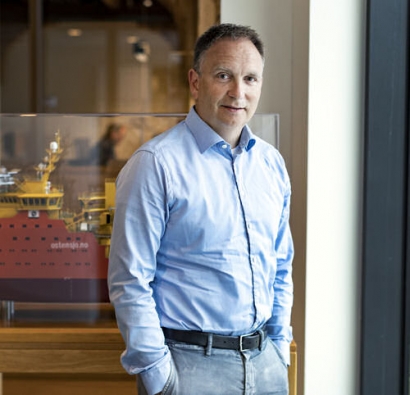
“We’re very happy to have found the ideal partner in the Østensjø Group. The Østensjø Group, which is well established not only in Norway but also internationally, has seen LOHC as the game changer for the decarbonisation of shipping for some time”, comments Dr. Daniel Teichmann, CEO and founder of Hydrogenious LOHC Technologies and the joint venture’s Chairman of the Board.
“Hydrogenious LOHC Maritime AS will make our proprietary LOHC technology available for onboard solutions for sustainable maritime traffic, i.e. develop, final assembly and market integrate carbon-free propulsion systems and offer aftermarket and other related services,” he said.
“The Østensjø Group is committed to take part of the energy transition and to find ways to cut emissions. Of all the potential zero-emission technologies, we find LOHC the most promising one. That is why we have prepared all six service operation vessels under construction in our subsidiary, Edda Wind, for LOHC-based propulsion. Safety is of course very important for us in these evaluations. However, the fact that we can use existing fuel infrastructure and are able to use familiar fueling procedures is of importance. In addition, we can easily carry enough energy onboard our vessels in order to operate in normal intervals of up to four weeks without refuelling,” says Håvard Framnes, Investment Director in Østensjø Group as well as board member in Hydrogenious LOHC Maritime.
Hydrogenious LOHC Maritime AS, headquartered in Norway/Haugesund, is 70% by the German midstream player Hydrogenious LOHC Technologies GmbH and 30% by the Norwegian shipping group Johannes Østensjø dy AS.
Enova SF has funded the development of a 200 kw pilot of the LOHC/fuel cell propulsion system – the focus of the first joint venture project HyNjord – with NOK 26 million (about €2.5 million). The planned application will integrate three core components on-board: The LOHC Release Unit, which releases hydrogen from the liquid organic carrier Benzyltoluene on demand on the ship, as well as a fuel cell and an interface to the ship's power management system.
“We see a need to develop technologies for the use of various zero-emission energy carriers. LOHC will be a new alternative to compressed and fluid hydrogen, and the different energy carriers will probably have different advantages and areas of application. The HyNjord LOHC- project will give us valuable information in order to contribute for hydrogen to become a real alternative to fossile fuels,”,says Øyvind Leistad, Marketing Director in Enova.

